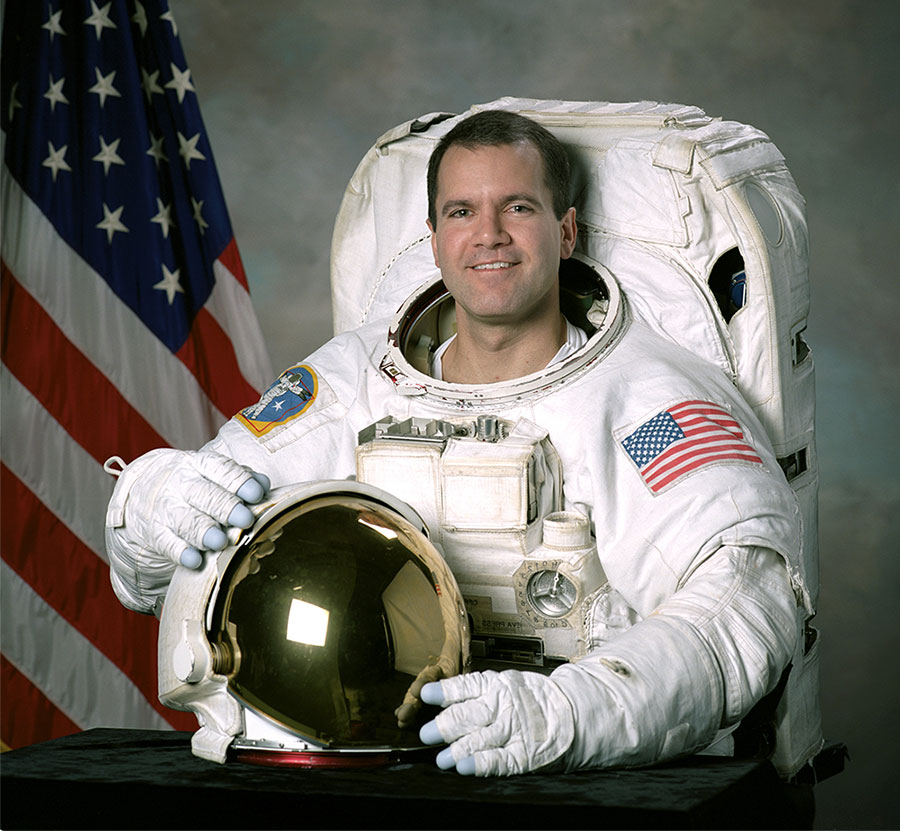
PERSONAL DATA:
Born in Scranton, Pennsylvania; married with two children; enjoys running, golf, boating, snow skiing, cooking and home repair/improvement.
EDUCATION:
• Graduated from Dunmore High School, Dunmore, Pennsylvania, in 1982.
• Bachelor of Science degree in mechanical engineering from Drexel University in 1987.
• Master of Science degree in mechanical engineering from the University of Maryland in 1991.
EXPERIENCE:
• Department of the Navy, Naval Ship Systems Engineering Station, 1983 to 1987.
• Transferred to NASA Goddard Space Flight Center (GSFC) in 1987.
• Worked in the Verification Office, Electromechanical Branch, Robotics Branch and Guidance and Controls Branch, all within the Engineering Directorate.
• Senior EVA Tool Development Engineer for the Hubble Space Telescope (HST) Servicing Project.
• Project Manager for HST EVA crew aids and tools
• Program Manager for HST EVA Hardware.
NASA EXPERIENCE:
• Selected by NASA in April 1996, Richards reported to the Johnson Space Center in August 1996.
• Richards was initially assigned to the Computer Branch working on software for the space shuttle and the International Space Station.
• He next served in the Astronaut Office Shuttle Operations Branch assigned to support Payload and General Support Computers (PGSCs) and the Shuttle Avionics Integration Laboratory (SAIL).
• Richards flew on STS-102 Discovery (March 8-21, 2001) which was the eighth shuttle mission to visit the International Space Station (ISS). Mission accomplishments included the delivery of the Expedition-2 crew and the contents of the Leonardo Multi-Purpose Logistics Module, the return to Earth of the Expedition-1 crew as well as the return of Leonardo, the reusable cargo carrier built by the Italian Space Agency. Richards performed an EVA totaling 6 hours and 21 minutes.
• He was assigned as a backup crewmember for ISS Expedition-7.
CURRENT POSITION:
Richards left NASA in February 2002 to become an aerospace consultant. In 2004, Richards returned to NASA GSFC as the Observatory Manager for the Geostationary Operational Environmental Satellite (GOES-R Series). The GOES-R series is the next-generation of advanced weather satellites being developed by the National Oceanic and Atmospheric Administration (NOAA) in partnership with NASA.
KEY NOTE SPEECH:
Richards will be presenting, "Fire Safety during the STS-102 mission onboard the ISS" presents his experiences during the STS-102 Discovery mission and how the mission crew had to be prepared for issues dealing with Fire Safety while onboard the International Space Station (ISS).


